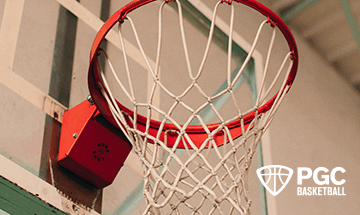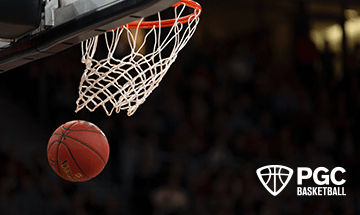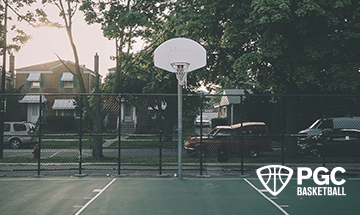How to Be Tougher
Stop calling players soft without teaching them how to be tough.
Use these 13 specific ideas to define toughness for your players.
Before we get going, know this: Toughness is a skill.
It can be developed & improved.
The toughest players are the ones who make it easy for their teammates and hard for their opponent.
Let’s dive in.
- Set good screens.
- Set up your cut.
- Talk on defense.
- Don’t get screened.
- Run the floor — hard.
- Get to your teammates first.
- Finish plays.
- Take & give criticism the right way.
- Show strength in your body language.
- Make getting better daily your goal.
- Be alert.
- Make every game important.
- Eye contact.
- It’s not your shot; it’s our shot.
When you set a good screen, you’re improving the chances a teammate gets open and you’re improving the chances you get open.
That’s toughness.
Basketball is about deception. Set it up, then cut hard.
A hard cut may get you an easy basket.
That’s toughness.
The toughest players communicate with their teammates. When you talk, you let your teammates know you’re there.
You let your opponent know you’re engaged. And you make each other better defenders.
That’s toughness.
Tough players have a sense of urgency not to get screened so the cutter can’t catch the ball where they want. Make the catch difficult and make your opponent’s life miserable.
That’s toughness.
When you do that, you’ll score more.
When you do that, you’ll be hard to guard.
When you do that, you’ll create for others.
There’s nothing easy about an “easy bucket.”
When your teammates lay their body on the line to dive on the floor or take a charge, get there quick to help them up.
Tough players are great teammates.
Tough players don’t just get fouled, they get fouled & complete the play. They don’t give up on a play or assume that a teammate “had it.”
A tough player plays through to the end & finishes each play.
It’s hard to have those tough conversations. So here’s a quick tip.
Speak with truth and love when sharing something a teammate may not want to hear, but needs too.
That’s toughness.
You’ll make a mistake. You’ll mess up. Avoid hanging your head & whining to officials.
Instead, project confidence & security with your body language.
That’s toughness.
Tough players hate losing but aren’t shaken by a loss. Tough players enjoy winning but aren’t satisfied.
The goal is to get better every day.
That’s toughness.
Tough players are not “too cool.” They’re alert & active, constantly communicating with teammates so they’re alert, too.
Tough players echo commands until everyone is on the same page.
Tough players don’t categorize opponents & games. They know if they’re playing, it’s important.
Tough players understand if they want to play in championship games…they must treat every game as a championship game.
Tough players don’t drop their heads. They look coaches & teammates in the eye because if they’re talking, it’s important.
It shows respect.
That’s toughness.
BONUS:
Tough players don’t take bad shots, and they certainly don’t worry about getting “my” shot. Tough players work for good shots & understand that it’s not “my shot,” it’s “our” shot.
Tough players celebrate when “we” score.
Credit: Jay Bilas, Toughness
Related Articles
Two Youth Basketball Organizations from the Jr. Nba’s Flagship Network Partner up to ‘teach the Game the Way It’s Meant to Be Played’
For the first time in history, two best-in class youth basketball organizations and members of the Jr. NBA Flagship Network – PGC Basketball and Pro Skills Basketball – have entered into an official partnership.
Upset About Something? (Maybe You Ain’t Taught It Well Enough)
One of the most important concepts for a coach to understand is The Responsibility Principle. If things aren’t going well, you have just one person to blame: yourself.
A Disturbing Trend That Could Destroy Youth Basketball Forever
Today I want to share something that’s been troubling me for the better part of the last year or so…it’s this new disturbing trend that could destroy youth basketball.
About PGC
PGC Basketball provides intense, no-nonsense basketball training for players and coaches. Our basketball camps are designed to teach players of all positions to play smart basketball, be coaches on the court, and be leaders in practices, games and in everyday life.
We combine our unique PGC culture with a variety of teaching methods and learning environments to maximize the learning potential of those that attend our sessions. In addition to spending 6-7 hours on the court each day, lessons will be reinforced through classroom sessions and video analysis.
Our goal at PGC is to empower you with the tools to fulfill your basketball dreams, while also assisting you in experiencing the joy of the journey.
To learn more about PGC Basketball, including additional basketball training tips and videos, visit our YouTube Channel or find us on Facebook, Instagram, and Twitter.













Share This Post